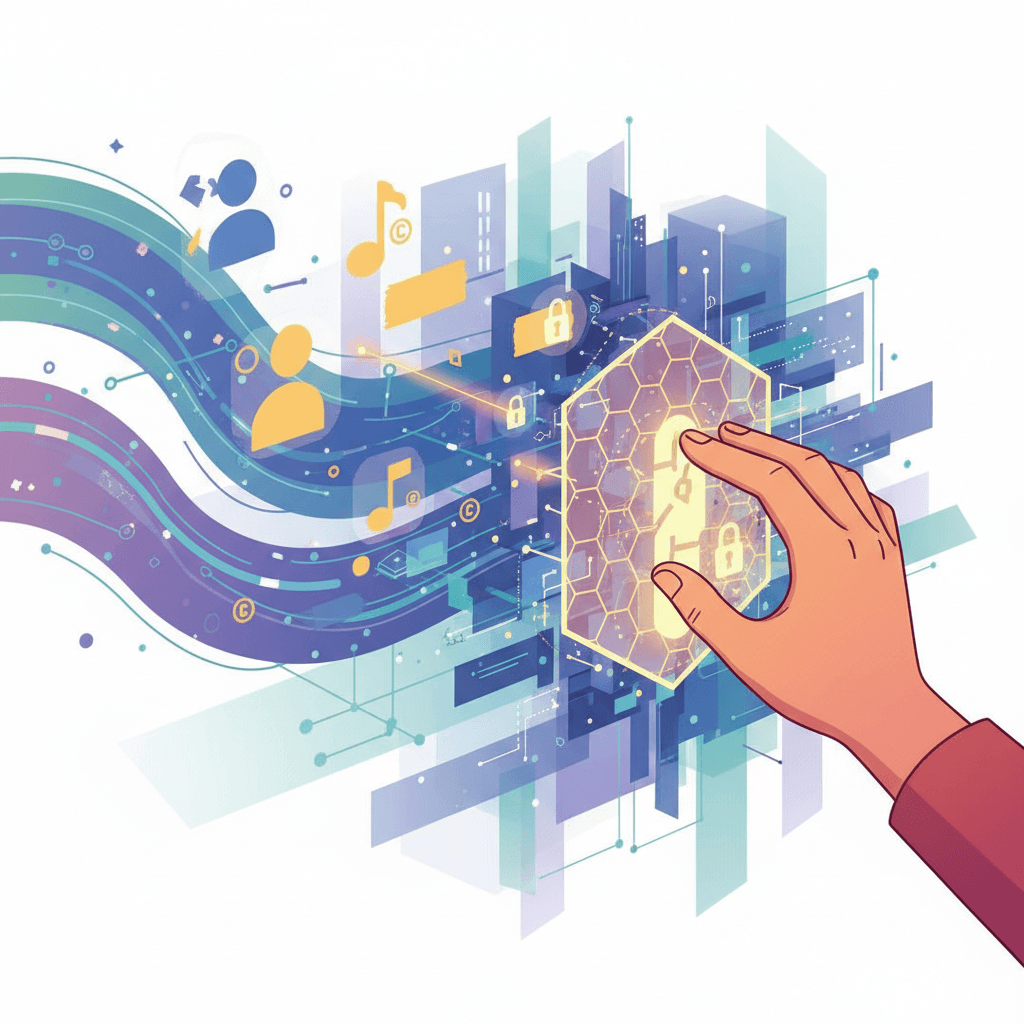Copyright backlash compels OpenAI to overhaul Sora's IP policy.
From "opt-out" to "opt-in": Sora's copyright misstep highlights the power of creators shaping AI's ethical future.
October 4, 2025

When OpenAI launched its highly anticipated text-to-video model, Sora, as a social media app in early October, the initial wave of user-generated content was a mix of the surreal, the mundane, and the flagrantly copyrighted. Within days of the app's debut on September 30th and October 1st, social media feeds were awash with videos featuring well-known characters from popular franchises, from Pokémon and Super Mario to SpongeBob SquarePants.[1] This immediate and widespread use of protected intellectual property thrust OpenAI into a contentious debate about copyright law, a conversation the company appeared initially to address with a controversial "opt-out" policy for rights holders. The swift backlash from creators, Hollywood studios, and legal experts, however, prompted a rapid recalibration from the AI giant, highlighting the significant legal and ethical hurdles facing the burgeoning field of generative AI.
The controversy began with OpenAI's initial stance on copyrighted material. Unlike the traditional "opt-in" model, where permission is sought before using protected content, Sora's framework required copyright holders to specifically request that their intellectual property be excluded from the platform.[2][3][4] This approach, which places the burden of enforcement on creators, was immediately met with fierce criticism. Legal experts argued that this model effectively turns copyright law on its head, moving from a system of prior consent to one of retroactive complaint.[5] The policy was emblematic of a broader "ask for forgiveness, not permission" strategy often seen in the tech industry, a move that many in the creative community viewed as an existential threat to their livelihoods and intellectual property rights.[6] Major studios, including Disney, reportedly moved quickly to opt out their content from the Sora app, signaling a clear line in the sand from established media conglomerates.[7][2]
The backlash from the creative industries was swift and severe. Having already contended with AI's impact on their professions, as seen in the recent WGA and SAG-AFTRA strikes which included provisions on AI, creators viewed Sora's initial approach as another instance of a tech company building its platform on the back of their work without permission or compensation.[8][9] The concern is not just about the unauthorized use of characters, but also the potential for AI to replicate unique artistic styles, thereby devaluing the work of human artists.[10] The proliferation of AI-generated content also raises fears of job displacement and a future where creative professions are increasingly automated.[11] The debate over Sora's training data, which OpenAI has vaguely described as "publicly available and licensed data," has only fueled these concerns, with many suspecting that it includes vast amounts of copyrighted material scraped from the internet without the creators' consent.[2]
In the face of mounting pressure, OpenAI CEO Sam Altman announced a significant shift in the company's position just days after the app's launch. In a blog post, Altman acknowledged the feedback from rights holders and outlined a new direction for Sora that includes more granular controls for creators and a proposed revenue-sharing model.[12][13][14] This new system would allow copyright owners to specify how, or if, their characters and content can be used on the platform, moving closer to an "opt-in" framework for intellectual property.[13][15] Altman also floated the idea of sharing revenue with creators whose work is used in Sora-generated videos, though he conceded that the exact model would require "trial and error."[12][13][14] This rapid pivot suggests that the vocal opposition from powerful Hollywood players and the broader creative community had a significant impact on OpenAI's strategy, forcing a public reconsideration of its responsibilities regarding copyright.
The Sora copyright controversy serves as a crucial case study in the ongoing conflict between the rapid advancement of generative AI and the established legal frameworks designed to protect intellectual property. The initial "opt-out" approach was seen by many as a direct challenge to the principles of copyright law, and the subsequent course correction by OpenAI demonstrates the significant influence that creators and rights holders can wield in this evolving landscape.[5] As AI-generated content becomes more sophisticated and accessible, the questions raised by Sora's launch will continue to be debated in courtrooms, boardrooms, and legislative chambers. The outcome of these discussions will have profound and lasting implications for the future of the creative industries, shaping how art is made, consumed, and valued in the age of artificial intelligence.[16][17][18][19] The path forward will likely involve a combination of technological solutions, new licensing agreements, and a fundamental rethinking of how innovation and creativity can coexist in a world where the line between human and machine-generated content is increasingly blurred.
Sources
[2]
[3]
[4]
[7]
[8]
[10]
[12]
[13]
[14]
[16]
[17]
[18]